Young students all across America are rejoicing in the years of hard work they put into their higher education as they accept their degree of choice from their university. While the days and weeks to follow graduation are often full of celebration, eventually that mortarboard hat comes crashing down—leaving many with a post-graduate reality check.
If you are a recent graduate who has not yet started the job hunt, there will likely be a lot of competition among your fellow entry-level colleagues. If you fear your graduation gifts (like money) will be running short and the need to pay rent is looming, you will probably want to put the brakes on your celebration and start looking for a job.
Getting a job does not have to be a terrible process, as having the right resources and understanding of your skills can make the search much more rewarding. With a carefully crafted resume and a personal yet professionally polished cover letter, you could well be on your way to getting an interview at a company that is looking for a fresh face to hire.
But what do you put on your resume if all you have done is take classes?
Some graduates looking for work may make the mistake of applying to jobs with no resume—believing that with no solid work history, there is not much more to show off than a degree. This assumption is false. Graduates can create interesting and intriguing resumes with the experiences they gained in college alone, including:
- Extracurricular Activities
You may not have gotten paid for DJing at your college radio station or editing at the university paper, but if you held any sort of title in your extracurricular activities, the experience could fit on your resume. Carefully think about the skills, duties and accomplishments you achieved while taking part in these university organizations and translate them to your resume and cover letter to show that you can, in fact, do work.
- Work Study Jobs
With tuition costs enormously high, many college students have opted to gain additional financing through work study positions—or campus jobs that pay students for their work. While these positions may not involve heavy career-oriented work and can be incredibly light in terms of hours, these experiences still count as professional experience. As such, it is critical to list these positions on your resume and consider keeping in touch with your supervisors if you end up needing a reference down the road.
- Volunteering
If you were part of a service organization, took part in activist efforts or helped with fundraising initiatives at any point during your college career—you are in luck. Volunteer experiences can fit on a resume and can look great for any entry-level professional who does not have a deep work history to back up their skills. When discussing volunteer activities on your resume, it is important to not only focus on the responsibilities you took over, but also any quantifiable achievements—such as total funds raised for a particular cause.
- Awards and Other Accolades
When listing your degree under the “Education” section on your resume, it is worth listing any notable achievements you reached upon graduation, such as attaining a magna cum laude status. Other accolades worth noting on your resume or in a cover letter include any awards you may have received on thesis papers, presentations or other projects. Noting this work is especially worthwhile if it was published in any academic journals or distributed materials.
- Skills Gained in Courses
The “Core Competencies” section of your resume may be one of the most critical elements for hiring managers, especially if you have applied for a job through an Applicant Tracking System. While a brief list, these skills can identify where you are at on a professional level and indicate what type of capabilities you may be able to develop in the future.
If you have yet to work full time, you can still discover a myriad of skills to include in this section. Take time to review the courses you took in your academic career—particularly those relevant to your chosen industry—and identify the skills you gained in each course. These skills are applicable to list within your core competencies.
Get Help With Your Resume, Get Employed Sooner
The rush to find a decent job upon graduation can be intense, but it is important to not let the pressure encourage you to rush through the resume and cover letter writing process. Since these essential documents make the first impression on prospective employers, it is important to make sure they are edited, informative and sharp.
Putting these documents together amidst your job search can be challenging; fortunately Chic Resumes is backed by a team of professional resume writers that know what today’s employers are looking for. Through our one-on-one consultation process, we can learn about your university and work history to create an effective entry-level resume. Contact us today at (803) 831-7444 or resumewriting@grammarchic.net to improve your resume and enter the job market faster and with confidence.
Amanda E. Clark founded Grammar Chic in 2008. She is a graduate of Eastern Michigan University and holds degrees in Journalism, Political Science, and English. She launched Grammar Chic after freelancing for several years while simultaneously leading marketing and advertising initiatives for several Fortune 500 companies.


